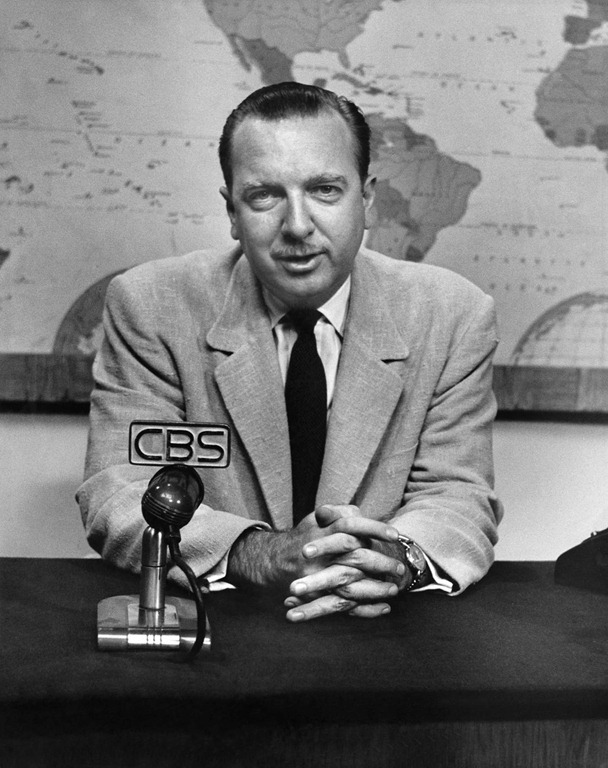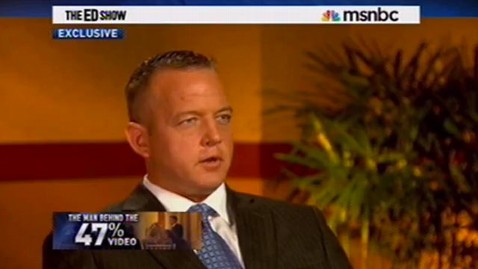 When looking at the role of the political media, much can be said about the concept of objective journalism. Certainly, political media has travelled a long way since the partisan press outlets of the 19th century, which hammered home party lines with complete disregard for bipartisanship or balanced stories. The so-called "road to objectivity" saw the art of journalism grow into a full-fledged profession during the 20th century, harnessing "truth" and "accuracy" as crucial characteristics of the industry. Yet, as late as 2011, a survey indicated that 68% of people hold the belief that the press is biased, 46% feeling too liberally, and 22% too conservatively. So what's the deal?
When looking at the role of the political media, much can be said about the concept of objective journalism. Certainly, political media has travelled a long way since the partisan press outlets of the 19th century, which hammered home party lines with complete disregard for bipartisanship or balanced stories. The so-called "road to objectivity" saw the art of journalism grow into a full-fledged profession during the 20th century, harnessing "truth" and "accuracy" as crucial characteristics of the industry. Yet, as late as 2011, a survey indicated that 68% of people hold the belief that the press is biased, 46% feeling too liberally, and 22% too conservatively. So what's the deal?
The generally accepted journalistic code of ethics requires writers and outlets to be fair and balanced. ABC News Senate reporter Sunlen Miller explained how that particular outlet "prides itself on its ability to present a fair and balanced story", making objectivity a requirement for every piece that goes out. This style of "he said, she said" journalism places an emphasis on factual reporting, giving opportunity for both sides of a story to be told. Speaking generally, most outlets will also refrain from a clear alignment with a political party, avoiding direct affiliation with one side or the other. Particularly in American politics, the presence of only two political parties means not all readers will exclusively share opinion with the same party on every issue. For this reason, media outlets should remain more neutral, in order to maintain a readership.
 |
| The ideaa of "the most trusted man in news" Walter Cronkite hosting a partisan radio show is an unimaginable one |
What is more, today's political campaigns are seldom seen unaccompanied by a string of story-thirsty reporters. The so called "press pack" will follow politicians everywhere, frantically scampering for the first word on an issue or following an event. Many have argued that this "pack journalism", where reporters may be "on the bus" for months on end with politicians, removes some of the bias associated with modern reporting. With a sameness to many of the stories coming out of the press corp, a more moderate stance develops. Despite this, I'd like to think that the opposite actually happens. When reporters are spending every day and every month with politicians, it is undoubtable that relationships and sympathies develop. Below, we can see a clip of President Obama present the aforementioned "neutral" Sunlen Miller with a 30th birthday cake aboard Air Force One:
Likewise, during his 2000 campaign for President, Texas Governor George Bush did something similar for NBC journalist Alex Pelosi. Whilst I do not wish to jump to conclusions, it would perhaps be foolish to assume that these kind of interactions and gestures have absolutely no bearing on journalists; they are, after all, people too.
Let's not also forget that every story cannot be entirely objective. Choices must be made in regards to word order, omission and inclusion of certain details, adjectives used and the narrative adopted. With this in mind, it's probably not suitable to talk about objectivity anymore.
Part of the definition of 'objectivity' states "not influenced by personal feelings or opinions." Quite simply, there is not a person on this planet, journalist or not, who can 100% of the time be uninfluenced by their own considerations. Bush, Obama, and every other politician to ever walk the earth know this, and it's clear that in many instances they use it to their advantage with compliments and first scoops often exchanged with journalistic loyalty. If a politician knows they can rely on a reporter to convey the right message, it can become an incredibly powerful tool, particularly if that journalist is affiliated with an established and influential media outlet.
The cynic in us may well argue that the politician-to-reporter birthday cake practice represents nothing more a sugar-coated swipe at the reporters' shield of objectivity, a chocolate-filled attempt to secure the loyalty of a certain journalist. Then again, like journalists, politicians are people too; perhaps they just want to wish someone a Happy Birthday or share their homemade recipe. I'll let you decide.
Let's not also forget that every story cannot be entirely objective. Choices must be made in regards to word order, omission and inclusion of certain details, adjectives used and the narrative adopted. With this in mind, it's probably not suitable to talk about objectivity anymore.
 |
| Ann Romney, wife of then-Republican Presidential candidate Mitt Romney, hands out cookies to the press on a flight to Tampa, August 2012 (Washington Post) |
The cynic in us may well argue that the politician-to-reporter birthday cake practice represents nothing more a sugar-coated swipe at the reporters' shield of objectivity, a chocolate-filled attempt to secure the loyalty of a certain journalist. Then again, like journalists, politicians are people too; perhaps they just want to wish someone a Happy Birthday or share their homemade recipe. I'll let you decide.




